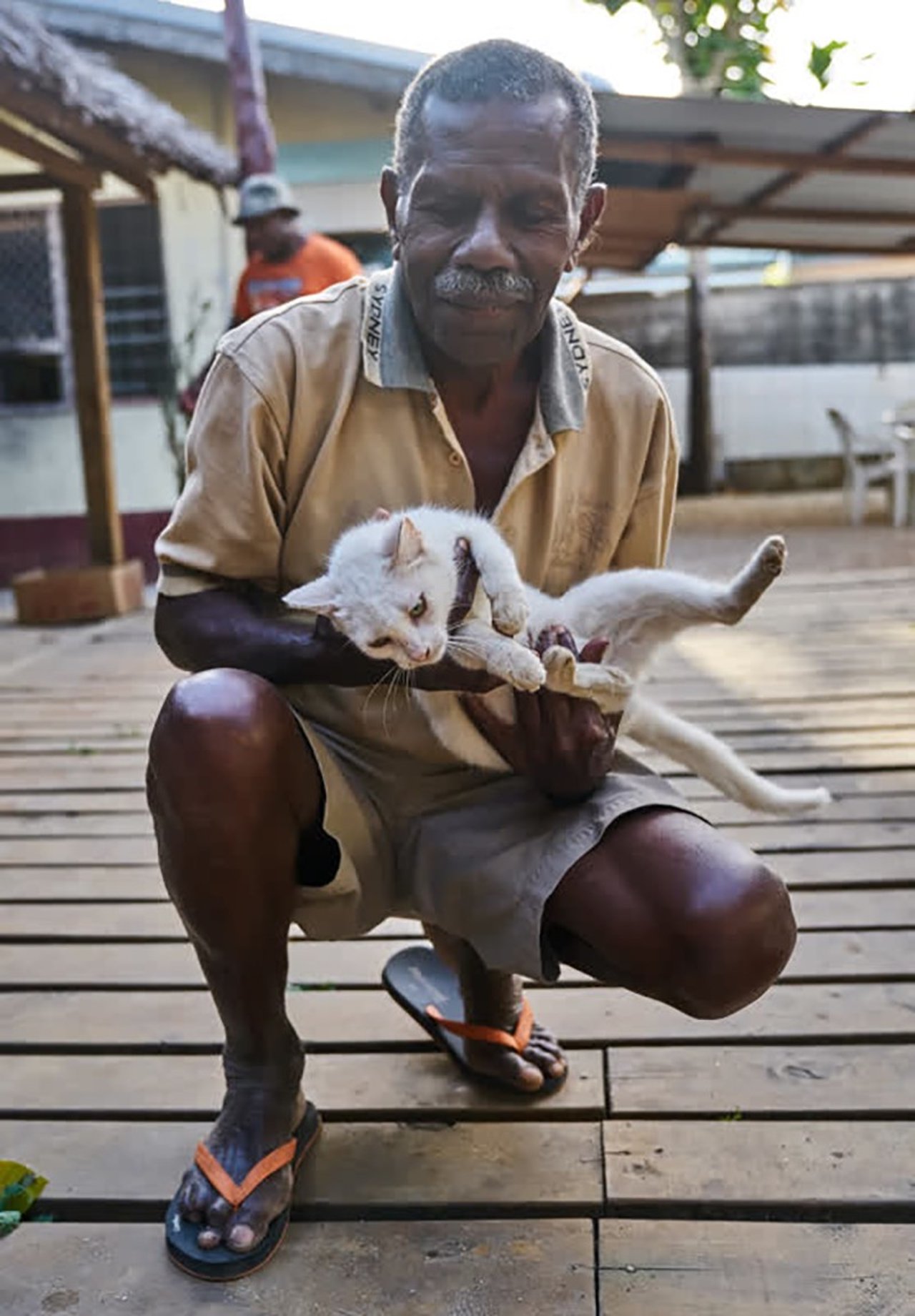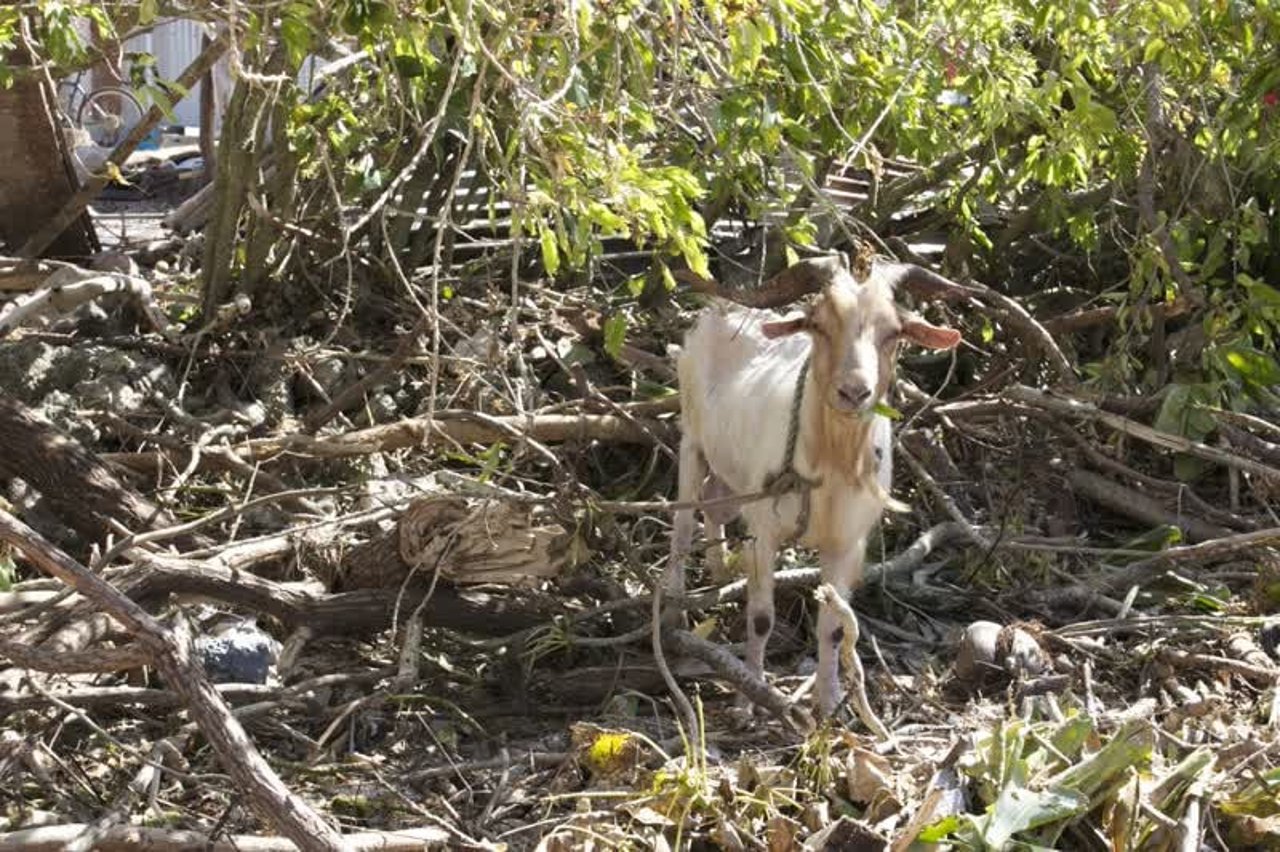
We're deploying to Vanuatu to help animals after volcano eruptions
News
People have been provided continued humanitarian support, but animals still require veterinary care
Ambae Volcano, located in central Vanuatu, continues to erupt with varying intensity since sudden and severe increase of activity started in September 2017. All 11,000+ residents were required to evacuate the island for nearly two months, and due to the critical situation people were unable to take animals with them to evacuation areas off island and animals were left without the support of owners.
People have since been allowed to return to their island, to damaged and destroyed gardens, to emaciated and sick or injured animals and to their agriculture-based livelihoods impacted for years to come.
Resident Mr Lamarsdel Lolo was forced to leave his beloved animals behind.
Impact on Animals
The Vanuatu Departments of Livestock and Biosecurity are the agencies providing key government support for livestock welfare and re-establishment on Ambae. According to their recent assessment in December 2017: “Many animals perished on Ambae when the island was completely evacuated in October. In areas affected by volcanic ash livestock have continued to perish since the community has been allowed to return to their island. There have also been many instances where livestock continue to suffer injury, malnutrition and inadequate access to water.”
Our proposed response
The Director General of the Vanuatu Ministry of Agriculture, also serving on the National Disaster Committee, requested assistance from our organization to “to assist the Ambae community to properly care for and identify their livestock, …as the community continues its recovery from the emergency evacuation incident.”
We will be offering assistance on the Ambae island over a period of 7 days, in which we will:
- Support two mobile veterinary teams for treatment and health promotion of animals, companion and livestock
- Ensure that all available livestock is tagged and documented providing a mini-census of animals and a baseline of animal health for future monitoring and analysis
- Co-deliver5-gallon watering buckets to all 2200 households alongside the Vanuatu Red Cross Society and Vanuatu Livestock Department enabling Ambae enabling people to provide water to their livestock
Prior to this volcanic eruption, Ambae island has an estimated population of 56,000 livestock along with thousands of cats and dogs. Current animal population figures have not yet been retrieved, but it is expected that 10-20% of the animals have either died or disappeared. Urgent help is needed, before this figure continues to rise and takes more of a toll on a population that relies on these animals to maintain their livelihood.
A surviving goat in Port Vila, Vanuatu, following Cyclone Pam which struck on 13 March, 2015.
Long-term implications
Unfortunately, situations like the one in Ambae are common in impoverished areas where natural disasters occur frequently. Much of our efforts are concentrated on rehabilitation and recovery of animal life post-disaster. However, the importance of preparation – the power of being ready – in anticipation of these events cannot be understated.
To help all of Vanuatu prepare for future catastrophic disasters, we have proposed to work directly with the Vanuatu Red Cross Society for the integration of animal welfare into their community planning tools for this Ambae Volcano Eruption crisis and for replication into all future VRCS DRR and DRM activities.
Going forward
We hope that these newly instituted programs serve to bring stabilization during times of crisis, and minimize the potential for animal suffering during island evacuations.
Top image: A local dog amid the debris in Port Vila, Vanuatu, following Cyclone Pam. In 2015, our disaster response team helped animals in Vanuatu affected by the cyclone.
Much of our efforts are concentrated on rehabilitation and recovery of animal life post-disaster. However, the importance of preparation – the power of being ready – in anticipation of these events cannot be understated.

